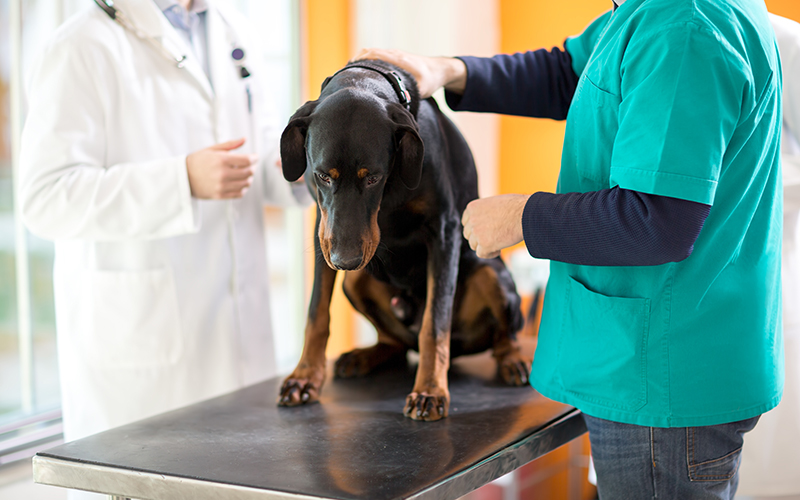My Dog Has a Fibrocartilaginous Embolism (FCE). Now What?

My dog has an FCE. How did this happen?
A fibrocartilaginous embolism, or FCE, occurs when a piece of the intervertebral disc (the cushion between the bones of your spine) breaks off and enters the blood supply to the spinal cord. It blocks the blood supply to part of the spine, which causes neurologic signs.
Most dogs that develop an FCE do so while running or playing, but to be honest, the process of how an FCE occurs is a bit of a mystery, even to your Veterinary Neurologist. We know that FCEs are caused by a piece of the intervertebral disc blocking the blood supply to the spinal cord. What we don’t understand is how part of the disc is able to enter the blood supply in the first place.
Was my dog at risk for an FCE?
How did my Veterinary Neurologist diagnose my dog with an FCE?
- Sudden onset of weakness occurring during play or exercise
- Stabilization of clinical signs after 24 hours
- Absence of spinal pain
- Asymmetric clinical signs (one leg is often much more affected)
What is the treatment for an FCE?
Treatment for an FCE is controversial. Some neurologists recommend treating with steroids or vasodilators (medications to “open” up the blood vessels); however, there is no proof that these medications will speed or improve recovery. There is some evidence that controlled physical therapy is beneficial for dogs with FCE. Your Veterinary Neurologist can provide you with rehabilitation instructions and assisted walking devices for your dog.
What is my dog’s prognosis?
Can my cat get an FCE?
Yes. Cats have been reported to have FCEs. They tend to be slightly older when it occurs (approximately 10 years old) and male cats are slightly more predisposed than female cats. Cats are more likely to have an FCE in their neck. Recovery times are similar to dogs. Cats typically begin walking 3-11 days after injury and 79% will return to a normal lifestyle.
Edited by:
Baye Williamson DVM, DACVIM (Neurology)
March, 2021
Articles by Specialty
- Cardiology (19)
- Large Animal Internal Medicine (23)
- Neurology (17)
- Oncology (21)
- Small Animal Internal Medicine (29)
Articles by Animal
- Cats (35)
- Dogs (52)
- Farm Animals (5)
- Horses (12)
